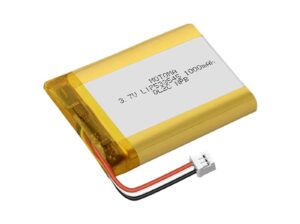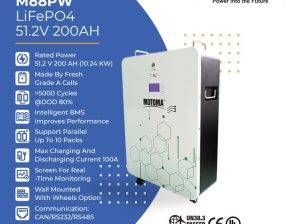What is solar panel efficiency? Why its So Important?
In recent years, solar power has emerged as one of the most promising sources of renewable energy. However, the efficiency of solar panels plays a crucial role in determining the overall effectiveness of solar power. This blog post aims to provide an in-depth understanding of solar panel efficiency, why it is important, and the factors that affect it.
What is solar panel efficiency?
Solar panel efficiency refers to the percentage of sunlight that a solar panel can convert into usable electricity. In other words, it is the ratio of the amount of electricity generated by the panel to the amount of sunlight it receives. The higher the efficiency, the more electricity a solar panel can produce.
The efficiency of a solar panel is determined by its ability to convert sunlight into electricity. This process is based on the photovoltaic effect, which involves the absorption of sunlight by the solar panel‘s semiconductor material, which generates a flow of electrons that can be harnessed as electricity.
Why is solar panel efficiency important?
Solar panel efficiency is important for several reasons, including:
- Cost-effectiveness: Higher efficiency means that fewer solar panels are required to generate the same amount of electricity, which reduces the overall cost of the system.
- Space requirements: Higher efficiency allows for more energy to be generated from a smaller surface area. This is particularly important for installations in urban areas where space is limited.
- Environmental impact: Higher efficiency means that less land is required to generate the same amount of electricity, which reduces the impact of solar power on the environment.
- Energy output: Higher efficiency means that more electricity can be generated, which is particularly important for large-scale solar power installations that require high energy outputs.
Factors affecting solar panel efficiency:
Several factors affect the efficiency of solar panels, including:
- Temperature: Solar panel efficiency decreases as temperature increases. Therefore, solar panels perform better in cooler climates.
- Shading: Shading can significantly reduce the amount of sunlight that a solar panel receives, which reduces its efficiency. Therefore, it is important to install solar panels in areas that receive maximum sunlight.
- Angle of incidence: The angle at which sunlight strikes a solar panel affects its efficiency. Solar panels perform best when sunlight strikes them at a perpendicular angle.
- Type of solar cell: Different types of solar cells have different efficiencies. For example, monocrystalline solar cells have higher efficiencies than polycrystalline solar cells.
- Quality of manufacturing: The quality of manufacturing affects the efficiency of solar panels. High-quality manufacturing processes result in solar panels that are more efficient.
Conclusion:
Solar panel efficiency is a critical factor in determining the effectiveness of solar power. Higher efficiency allows for more electricity to be generated from a smaller surface area, reducing the overall cost and environmental impact of solar power. Several factors affect the efficiency of solar panels, including temperature, shading, angle of incidence, type of solar cell, and quality of manufacturing. Therefore, it is essential to consider these factors when designing and installing solar power systems. With the increasing demand for renewable energy, solar panel efficiency will continue to play a crucial role in the future of sustainable energy.
Comments (5)
You must be logged in to post a comment.



[…] generation with solar panel angles is to adjust the angle seasonally. As we discussed earlier, solar panels should be angled more steeply in the winter and more shallowly in the summer to capture as much […]
[…] rooftop or want to generate more electricity with fewer solar panels, then you should opt for more efficient solar panels. Monocrystalline solar panels are the best option for homeowners who want to maximize their […]
[…] are two main types of solar panels: monocrystalline and polycrystalline panels. Monocrystalline panels are more efficient but also more expensive. Polycrystalline panels are less expensive but not as efficient. Consider […]
[…] and long-lasting, typically with a lifespan of 25 to 30 years. However, after this period, the efficiency of the panels begins to decline, and they may no longer meet the energy demands they were initially intended for. […]
[…] solar power is cheaper and more efficient than ever, making it an excellent option for powering your home. A solar powered home relies on […]